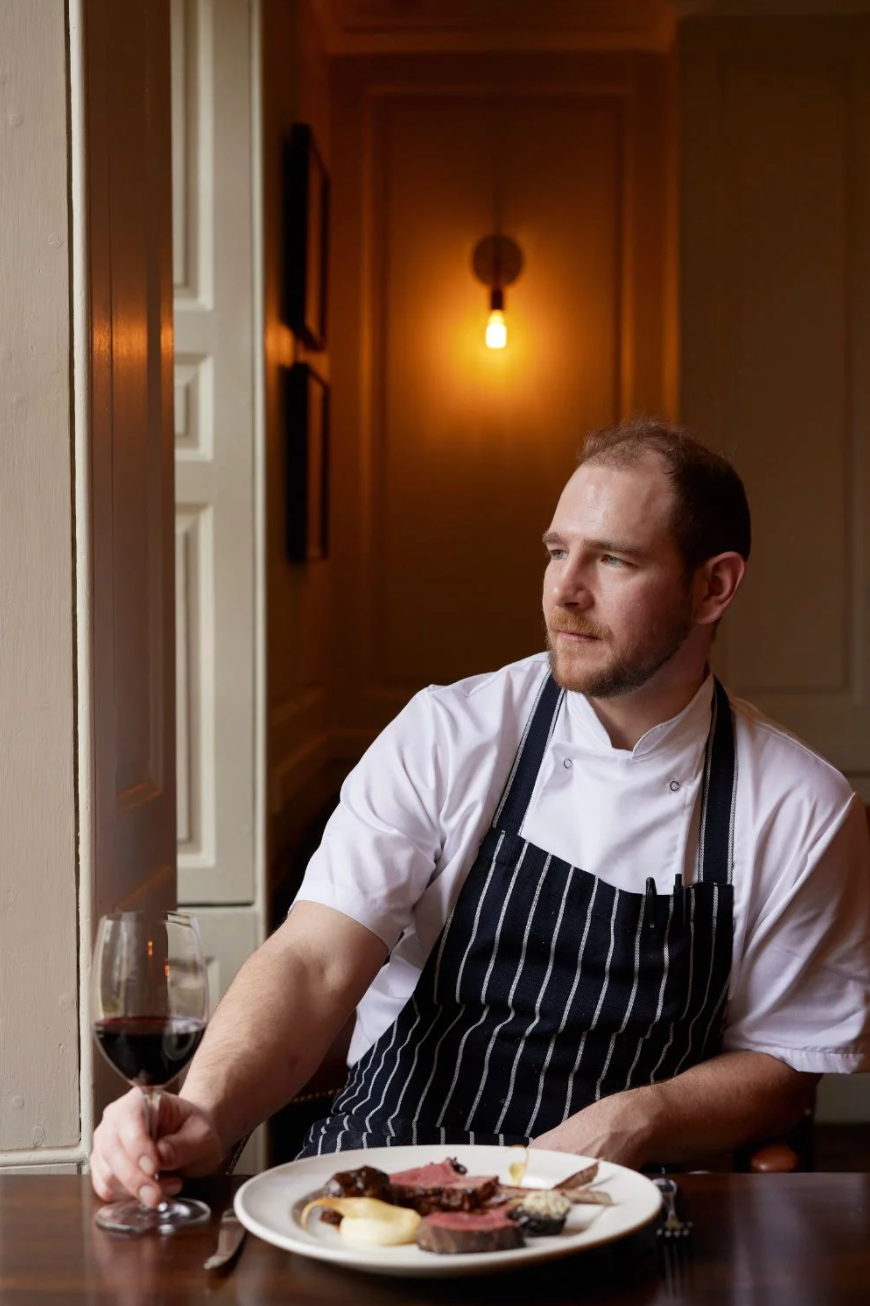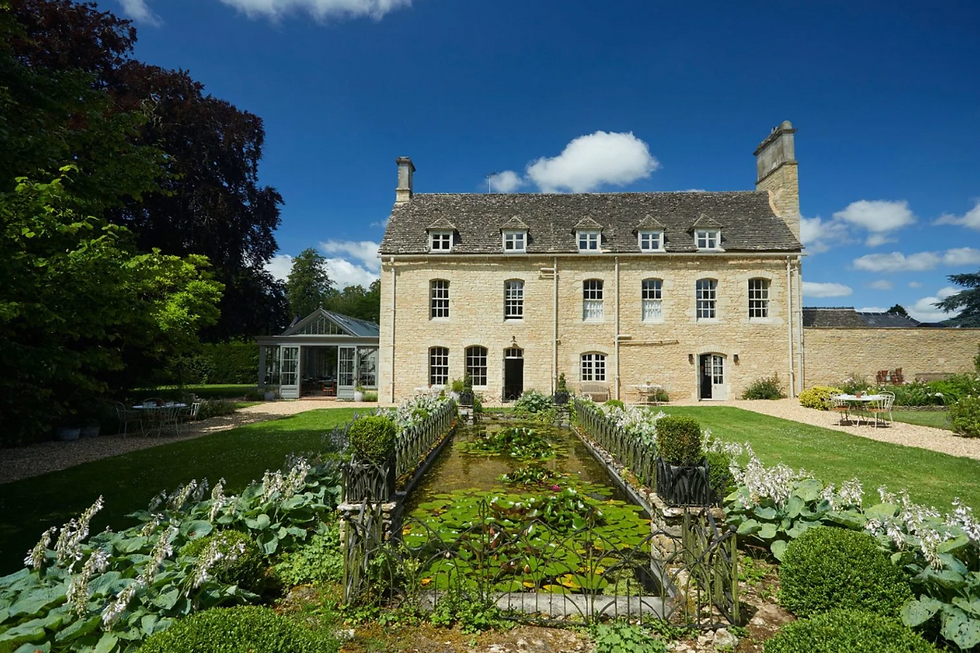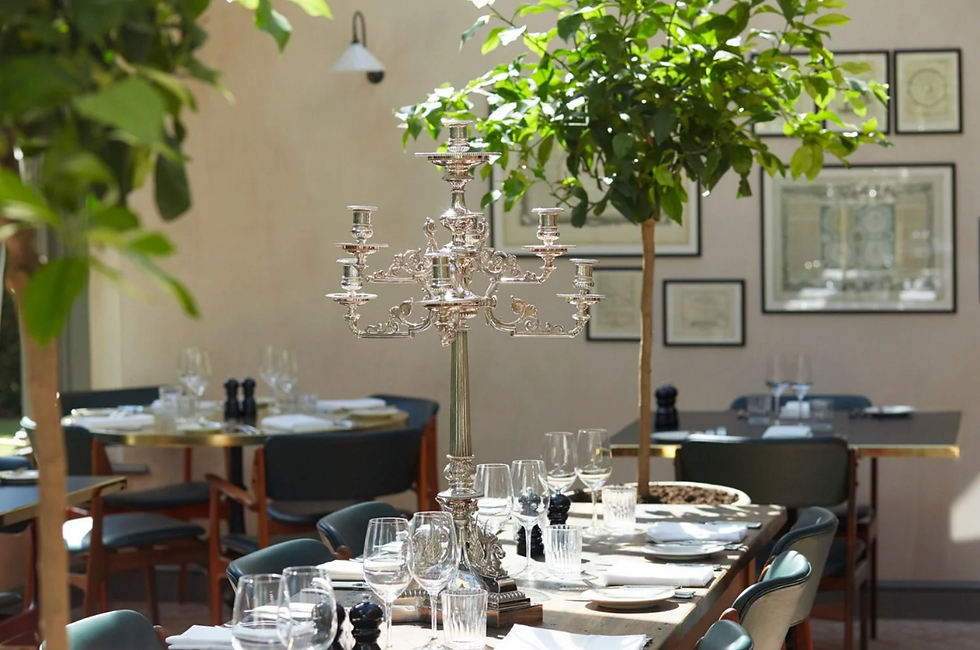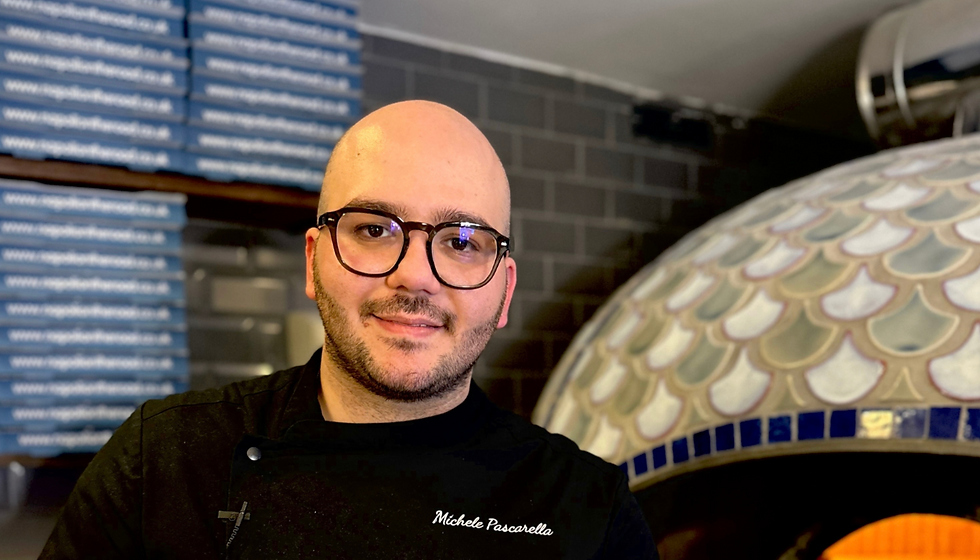Jake Simpson - Head Chef At The Rectory Hotel, Crudwell, And The Life In The Country
- Chloe Harrison
- Aug 30, 2024
- 6 min read
He is currently leading the gorgeous restaurant at The Rectory, a country residence hotel in the Cotswolds - therectoryhotel.com

Greetings, Jake! What inspired your interest in cooking?
During my undergraduate tenure, I resided in self-catering accommodations, and on the first day, I consumed a Pot Noodle, an event I had no desire to repeat. I rapidly began self-teaching culinary skills and became very engrossed in the process. My experience at Edinburgh University was enhanced by the exceptional quality of the available goods. I recently found an excellent game dealer named George Bower located in Stockbridge. Although I lacked financial resources, I possessed an abundance of time, which proved advantageous as a food enthusiast. This allowed me to purchase items at low cost and dedicate the necessary time to prepare them appropriately.
Consequently, I graduated from university with no clear direction regarding my future career. At that juncture, I was preoccupied with food; yet, I was disinclined to pursue a career in a restaurant due to its notorious reputation for extended hours and minimal financial compensation. However, I had essentially dismissed all other options. Fortunately, my godfather was employed by a company named Brindisa and was acquainted with nearly every chef in London. He invited me to dine with Jeremy Lee at the Blueprint Café, and following the meal, Jeremy engaged me in conversation. He inquired whether I wished to spend a week working there, and as I had no other commitments, I deemed it an excellent opportunity. After several days of that experience, he extended a job offer to me, and I had already developed a profound passion for being a chef. That was essentially the conclusion.

What motivated your transition from Bocca di Lupo in Soho to Wiltshire, and specifically to The Rectory?
Bocco and The Rectory are distinctly dissimilar. Bocca exemplifies the quintessential London restaurant, situated in the heart of the theatrical district, accommodating over 200 patrons on a bustling evening, and offering an exceptional dining experience that is genuinely enjoyable. I have reached a point in my personal life where I desire to relocate from London; raising two children in the city is exceedingly challenging. In my professional life, I sought a more intimate connection to the produce than what is attainable in London. In London, one can procure exceptional ingredients from around the globe; nonetheless, there exists a sense of disconnection - one places an order, and it arrives. I desired to be nearer to the ingredients.
Regarding Wiltshire, my wife hails from there, although I possess a somewhat stateless identity: I was born in London, yet raised in Hong Kong and Australia; my parents relocated to Suffolk when I was around 13, while I attended boarding school in Yorkshire; also, I resided in Edinburgh for four years. I do not own a profound attachment to any particular location, however Wiltshire has been a place I frequented during my childhood; my mother's closest friend resides here, my uncle has consistently owned a house in this area, and my brother lived here for an extended period. The decision to relocate was relatively straightforward. This region of the country is exquisite and renowned for its agricultural output; encompassing not just Wiltshire but also Dorset and Somerset, it boasts exceptional farmers producing high-quality cheeses and charcuterie, so enhancing my connection to the cuisine.
The Rectory is the antithesis of Bocca; it is far more relaxed. The dining room and the grounds are exquisite, complemented with a delightful kitchen garden, and the owner has been exceptionally accommodating in allowing me to pursue my preferences. They have entrusted me significantly.

Could you provide information regarding the kind of dishes available at The Rectory?
I believe "modern European" is arguably the most appropriate term; nonetheless, its vagueness renders it virtually worthless. It is fundamentally English cuisine with some influences from elsewhere, which may also be categorized as modern British, similar to the approach used by Jeremy Lee at Quo Vadis.
During lunch, the dining arrangement is somewhat more informal, including a combination of large dishes and numerous smaller plates, offering a variety of snacks. You may either partake in a substantial banquet or opt for light refreshments. In the evening, a traditional à la carte menu is offered, comprising starters, main courses, and desserts. We endeavor to include a dish suitable for sharing between two patrons, with a selection of snacks available for enjoyment with drinks at the bar prior to dining.
It is essential for me to ensure that meals do not remain on the menu for an extended period, so maintaining a sense of freshness; thus, if you were to visit twice within a month, you would not feel, "I have already consumed all that I desired." Moreover, it is enjoyable from a culinary perspective, as it prevents the monotony of preparing same dishes repeatedly, which may become burdensome swiftly.
From where do you derive inspiration for your culinary creations?
I engage extensively in reading and have a particular affinity for cookbooks, especially those that concentrate on certain cuisines or regions. I have a profound admiration for the older works; Patience Gray’s Honey from a Weed is exceptionally exquisite, infusing a sense of romanticism into culinary experiences. I consistently engage with such material. Subsequently, it typically becomes a matter of my preferences and the feasibility of integrating them cohesively into the existing menu. It is essential for foods to be delectable; nevertheless, I also possess a keen interest in their historical context, despite its potential lack of trendiness. For instance, we currently feature ham and melon on the menu, a dish emblematic of the 1980s, however the focus remains on creating the finest rendition possible. In this meal, we utilize Zerbinati melons from the esteemed melon aficionado Oscar Zerbinati in Lombardy, transforming seemingly esoteric ingredients into a delectable experience.
What is your method for sourcing produce? Are there any items on the menu that are locally sourced?
The opposite aspect of the menu pertains primarily to the ingredients available to me. We strive to utilize as much of the animal as possible, particularly with fish and meat. From a sustainability perspective, we frequently face a decision: either discard a quarter of our purchases or utilize them to craft something truly delectable that also embodies its origins.
Generally, I endeavor to utilize local ingredients for sourcing. We possess a kitchen garden that yields herbs, green beans, beetroot, chard, numerous nasturtiums, raspberries, and several other produce. We have planted fig trees on the hotel premises, allowing us to produce fig leaf oil and pickle underripe figs. We receive delivery of items such as apples, pears, and herbs from local residents who possess an excess and are uncertain of how to utilize them, which is quite delightful. Additionally, my sous chef James has a penchant for hunting, and we will collaborate with local game suppliers to procure birds, deer, and similar products, while also utilizing a substantial amount of seafood from Cornwall. I purchase certain items from Italy, such as melons and Cuore Del Vesuvio tomatoes from Campagna, which are transported to England by road rather than by air.

Provide information regarding The Rectory's monthly supper clubs.
They provide an excellent method for engaging with seasonal variations and diverse products. We will incorporate seasonal ingredients, such as introducing pheasants to the menu for the first time or featuring summer berries. The entire menu is mostly influenced by available ingredients, however we strive to highlight the offerings at the supper clubs and focus on those ingredients for several weeks.
Similarly, akin to arranging a plate of food to ensure harmonious presentation, there are meals from my life that I recall not for the individual dishes, but for the overall dining experience and its coherence. The supper clubs provide an opportunity for precise refinement.
How would you articulate your culinary philosophy?
Cooking, to me, revolves around the aesthetic appeal of the ingredients and enhancing their optimal qualities. It is seasonal; it mostly concerns exquisite cuisine and fostering communal connections.
What are your most unforgettable meals?
During my tenure with Jeremy Lee, I dined one day on cured salmon, followed by grouse, and concluded with almond tart with Mirabelle plums. We all had the identical dish, which was an exquisite menu selection.
What are three essential ingredients for your sustenance?
The initial option would be high-quality olive oil. We utilize cream sparingly, incorporating it into our ice cream, sweets, and sauces. Additionally, any remaining buttermilk is utilized in our morning waffles or afternoon tea scones. My concluding item would be nuts: we are presently utilizing a significant quantity of almonds in our menu, and Jeremy's almond tart is among my all-time favorites.
The forthcoming dinner club at The Rectory is scheduled for 3 October.





Comments